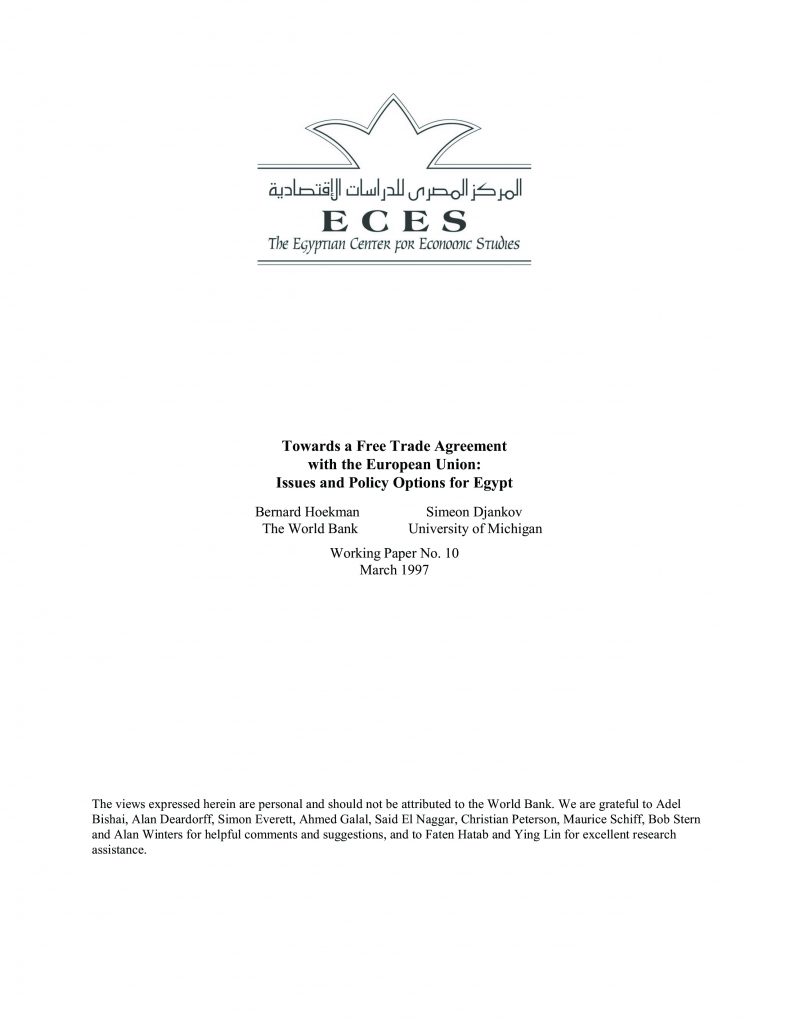Abstract:
The Government of Egypt has for some time been pursuing economic reform, which has led to great improvement in macroeconomic indicators. The supply response by the private sector, however, in terms of investment in productive resources and employment creation, has been limited. This may be due to uncertainty regarding the reversibility of reform, or because reforms have not gone far enough to induce large scale investment.
This paper assesses the potential role of a Euro-Mediterranean Agreement (EMA) in helping to implement further structural economic reforms, and hence to help address the abovementioned impediments to investment. It evaluates the recently negotiated EMA between Tunisia and the EU, and discusses possible effects of preferential liberalization with the EU and additional action that could enhance the benefits for Egypt.

Towards a Free Trade Agreement with the European Union: Issues and Policy Options for Egypt
03-03-1997
Author(s): Simeon Djankov & Bernard Hoekman
Publication Number: ECES-WP10-E
